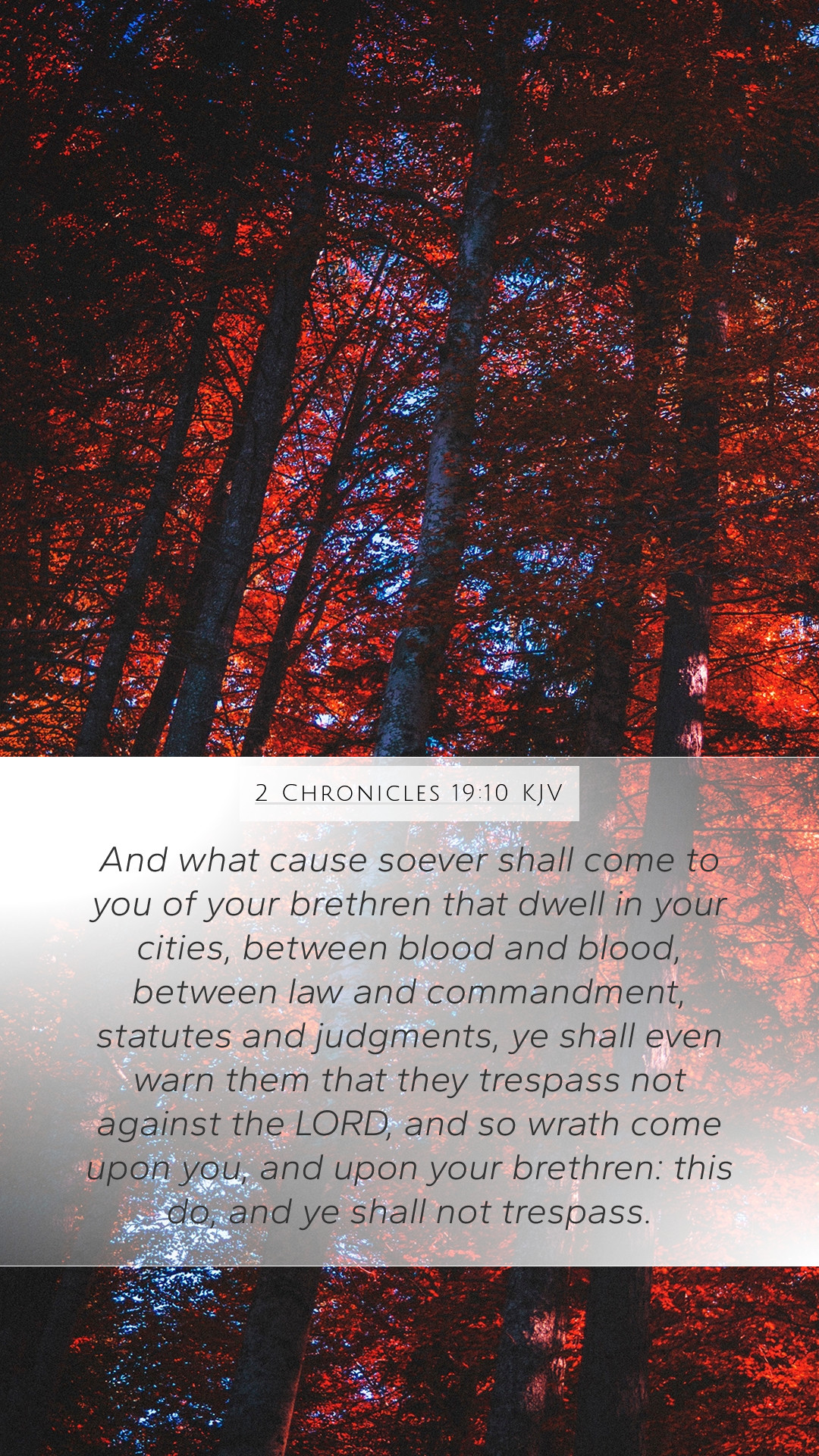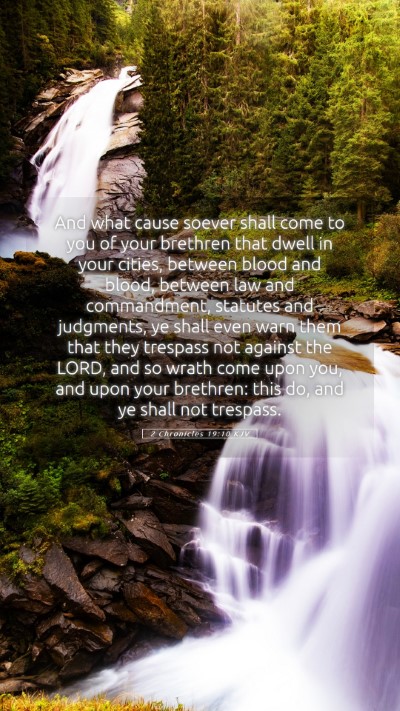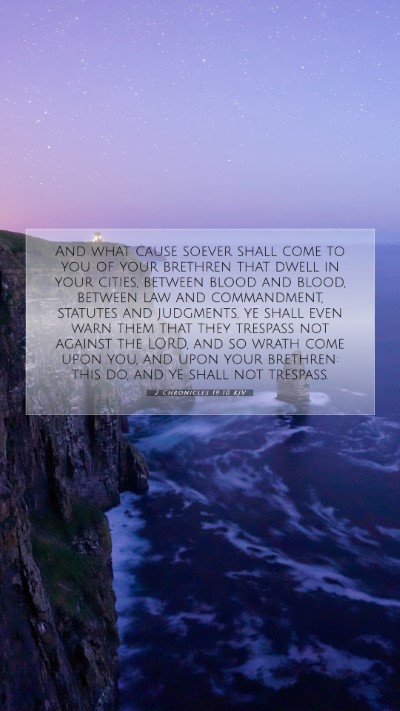Understanding 2 Chronicles 19:10
“And what cause soever shall come to you of your brethren that dwell in their cities, between blood and blood, between law and commandment, statutes and judgments, ye shall even warn them that they trespass not against the Lord, and so wrath come upon you, and upon your brethren: this do, and ye shall not trespass.”
Overview of the Verse
This verse is a directive from King Jehoshaphat to judges about their responsibilities in adjudication based on the laws of God. It emphasizes the importance of justice, righteousness, and the fear of the Lord as they carry out their duties.
Key Themes and Concepts
- The Role of Judges: The scripture calls for judicial officers to act wisely and with discretion.
- Community Responsibility: Judges are reminded that their decisions affect the whole community.
- Divine Accountability: They are warned about the consequences of failing to uphold the laws of God.
- The Importance of Righteousness: The phrase “do not trespass against the Lord” highlights the need for judges to be aligned with divine laws.
Bible Commentary Insights
The combined insights from public domain commentaries such as those by Matthew Henry, Albert Barnes, and Adam Clarke provide depth to our understanding of this verse.
Matthew Henry's Commentary
Matthew Henry emphasizes the profound responsibility of judges to be just and fair, pointing out that their rulings must not only consider civil laws but must also be rooted in God’s commandments. He highlights that they are to warn and reprove offenders, thus acting as a moral compass for the community. Furthermore, Henry underscores the idea that God’s presence is invoked in judicial matters, and any deviation from divine standards leads to dire consequences not just for the judges, but for the entire nation.
Albert Barnes' Notes
Albert Barnes notes that this passage reflects the intense caution necessary for those in authority, advising judges to be instructed and careful in their duties. He draws attention to the phrase “blood and blood” as a call to uphold the sanctity of life and justice, implying that decisions have weighty moral implications. Barnes also highlights the communal nature of justice; the wrong decisions made by judges can attract divine wrath upon not only themselves but upon their fellow citizens.
Adam Clarke's Commentary
Adam Clarke provides insights regarding the administrative and judicial structures in ancient Israel and emphasizes the gravity of the judges’ roles in interpreting and enforcing the laws laid down in the scriptures. Clarke references the alignment of civil judgment with the spiritual righteousness and highlights the admonition of avoiding trespass against God as critical to maintaining national integrity.
Application of the Verse
This verse holds timeless relevance, particularly for those in leadership and judicial roles today. It serves as a reminder that authority comes with responsibility before God and the community. In practical applications:
- Integrity in Decision-Making: Individuals in positions of authority should strive for integrity and fairness, upholding justice that aligns with both civil and divine law.
- Community Engagement: Leaders are called to actively engage with their communities, fostering dialogue about justice and righteousness.
- Discipleship and Accountability: Encouraging a culture of accountability where those in authority are open to counsel and correction from their peers and from the community they serve.
Related Bible Cross References
- Deuteronomy 1:16-17: Emphasizes justice and the importance of fairness in judgment.
- James 3:1: Highlights the stricter judgment that teachers and leaders will face.
- Proverbs 29:2: Notes that when the righteous flourish, the people rejoice; but when the wicked rule, the people groan.
Conclusion
2 Chronicles 19:10 serves as a powerful reminder of the pivotal role that justice and righteousness play in governance and community welfare. By understanding the historical context and the biblical mandate described in this verse, one can appreciate the significance of maintaining integrity both in personal conduct and public service. As you delve deeper into this verse, consider how its principles can be applied to modern life and leadership.


